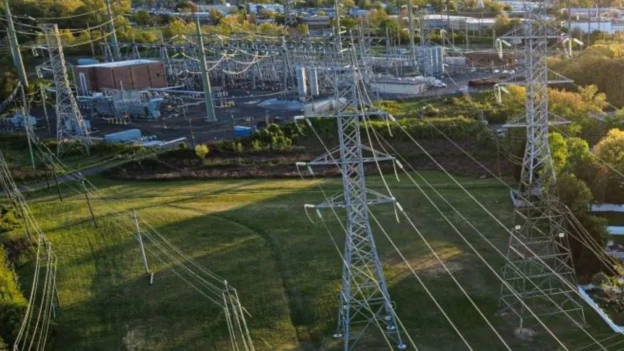The Federal Energy Regulatory Commission(FERC) has approved the elimination of Section 157.23 of its regulations, a rule that until now prevented gas infrastructure projects from starting construction while appeal applications were pending.
Gas infrastructure projects
As of this modification, developers will be able to obtain authorization to begin construction without having to wait for the resolution of these processes, which will reduce execution times and facilitate the logistical coordination of the projects.
This move comes at a time when demand for electricity and natural gas in the United States is growing steadily, driven by new data centers, electrified industrial processes and residential needs.
FERC has justified the removal of the article by citing the need to secure energy supply at strategic times and noted that existing judicial protections, such as stay or review applications, provide sufficient legal backing for affected landowners and the communities involved.
From the private sector, organizations such as the Interstate Natural Gas Association (INGAA), Energy Transfer and Kinder Morgan have welcomed the decision. They argue that the previous framework introduced unnecessary delays, drove up costs and increased regulatory uncertainty.
For their part, several environmental and legal groups, such as Delaware Riverkeeper and the Institute for Policy Integrity, have expressed concern about the possible reduction of opportunities to challenge decisions before construction begins and have warned about the risk of limiting public participation in processes that affect territories and ecosystems.
FERC has clarified that it will continue to evaluate each construction request under the parameters of Sections 3 and 7 of the Natural Gas Act, where environmental impact studies and specific conditions are contemplated for each case.
Without the Section 157.23 barrier, developers will be able to better align work schedules with seasonal conditions, contractors and investment timelines, especially on projects with tight timelines or associated with LNG export contracts.
Although FERC has stated that this modification is based on technical grounds, it is also true that it responds to a political climate that favors the accelerated expansion of energy infrastructure. Executive Orders 14154 and 14156, issued in early 2025, underscore the federal government’s priority to expedite permitting and reduce bureaucratic hurdles for projects deemed strategic to national security.
This regulatory agency has defended that its objective is to balance the need to accelerate the execution of projects with effective mechanisms to protect citizens and communities. The possibility of requesting judicial suspensions, as well as case-by-case evaluation, will remain in place. In addition, an automatic stay policy is maintained in proceedings involving eminent domain disputes, provided that the owners request it.
The new regulatory scenario also implies greater responsibility for FERC’s technical teams. FERC and development companies. With less time between the issuance of certificates and the start of construction, it will be essential that environmental and social studies are carried out rigorously and in advance. The agency’s commitment is to maintain high standards without slowing down the deployment of essential infrastructure for the energy system.
Source and photo: FERC

